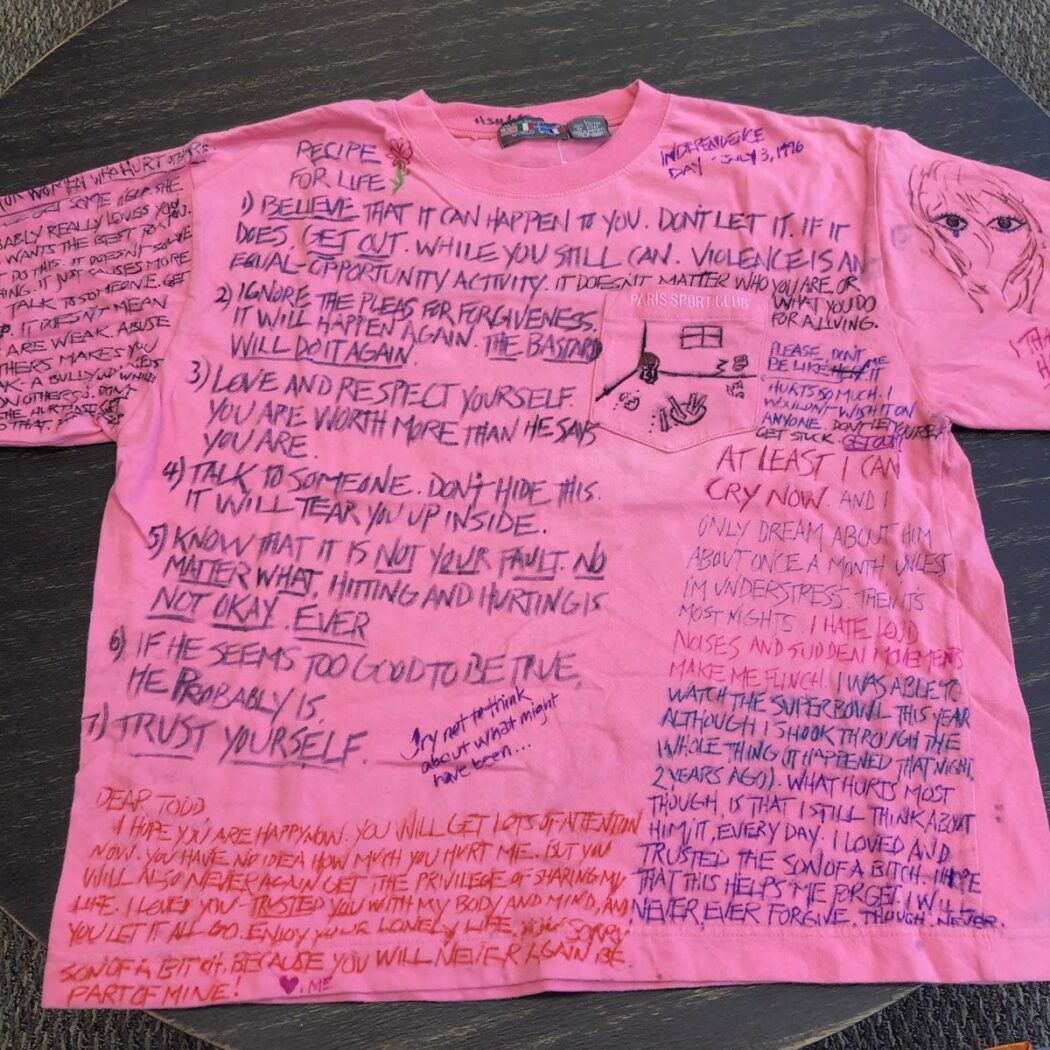The Clothesline Project supports survivors
October was National Domestic Violence Awareness month. In support of survivors and first responders to those experiencing domestic violence, Utah State University held the annual Clothesline Project.
The Clothesline Project was started by a group of women in 1990 during the Vietnam War. They calculated 58,000 soldiers had been killed during the war and compared the number to the approximately 51,000 women who had been killed during the same time period in domestic violence-related encounters.
During this time, laundry was often hung in semi-public places and was a common meeting place for women in the community.
While analyzing these interactions, one of the project founders, Rachel Carey-Harper, encouraged women to paint their shirts with specific signs to indicate knowledge of domestic violence.
This development was one of the first successes in the battle against domestic violence. The first project in 1990 spread across the nation and became a common forum for victims or first responders of domestic violence to report abuse.
To this day, the majority of states hold an annual Clothesline Project to raise awareness of domestic violence and to provide resources to help survivors and first responders.
Today, approximately 33% of Utah women will experience some form of domestic violence in their lifetimes. Over 370,000 Utah adult women have already, or will, directly experience this type of violence.
Additionally, 21.4% of Utah men experience intimate partner physical violence, and 40% of adult homicides in Utah are domestic violence-related, equating to approximately 95 deaths every year.
The USU Inclusion Center implemented the Clothesline Project. Jane Irungu, Vice President of Diversity, Equity, and Inclusion, said the project is a way for survivors to share their stories and highlight the overlooked reality behind the statistics of domestic violence.
“Each shirt in this project was created by a victim of violence, or by someone whose loved one was a victim,” Irungu said.
“My shirt that I made for the USU project was done for my neighbor,” an anonymous project participant said. “Unfortunately, she passed away last year. It was terrible to see how domestic abuse affected her life and the lives of her children. I wish more people knew about the resources available to them about abuse, and how there are people willing and wanting to help out there. I just hope people reach out.”
In association with the USU Inclusion Center, the Utah Marriage Commission released a podcast with Jill Anderson, CEO of CAPSA, discussing strategies and techniques for survivors and first responders of domestic violence.
In the podcast, Jill Anderson outlined the resources available to survivors on capsa.org, showcasing CAPSA’s main message: “We believe you, we can help you.”
“You are loved, valued and supported. Reach out, you are not alone,” Kiersten Wilson, CEO of the Utah Marriage Commission, said.
For those experiencing domestic violence or know of someone experiencing domestic violence, visit
CAPSA.org or contact the 24-hour support phone line at (435) 753-2500.

